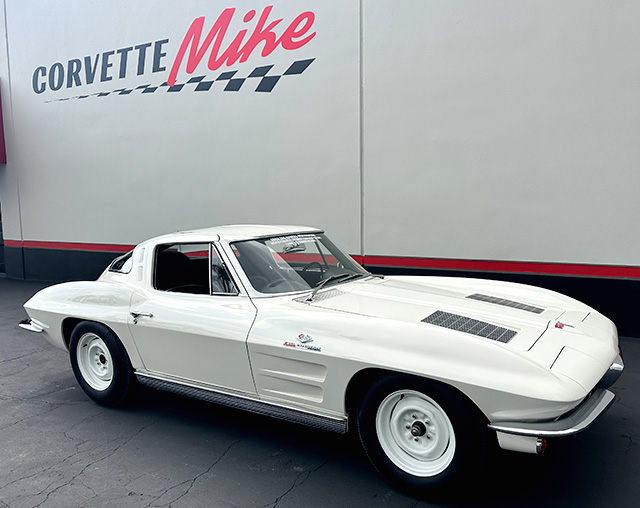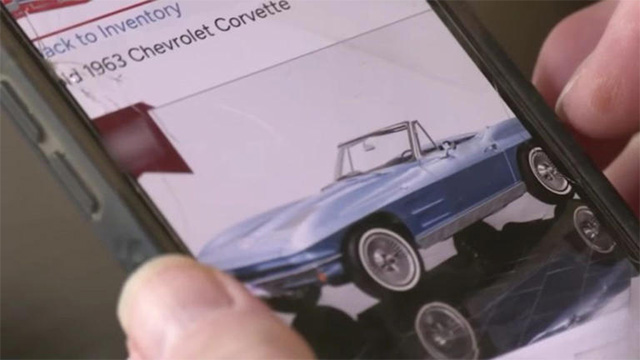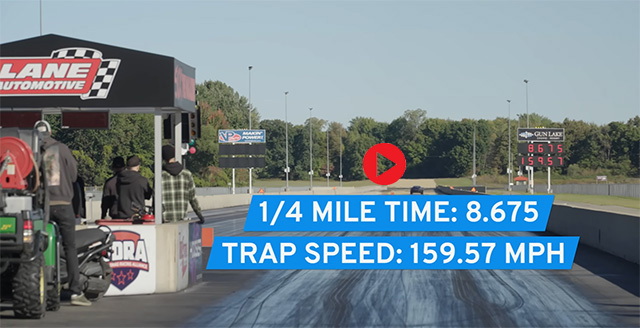Experience all the Style, Passion & History on Display
An Unmatched Tradition of Automotive Excellence
PEBBLE BEACH CONCOURS d’ELEGANGE ANNOUNCES 2024 FEATURES
Event to Showcase Expanded Range of Cars from
Early Pioneers to 1990s Supercars
The 73rd Concours will celebrate an expanded range of cars stretching from pioneering Packards and the Speedsters equated with that 125-year-old marque to the supercars that raced in the BPR and FIA GT Series of the 1990s. A focus on Maserati and the Coachwork of Pietro Frua add an Italian accent, and Wedge-shaped Concepts & Prototypes offer a distinctly modern look.
The competition begins now. Car collectors hoping to vie for the world’s top automotive prize — Best of Show at the Pebble Beach Concours d’Elegance — should ready their pens or computers. Applications to the 2024 competition, to be held on August 18, are now being accepted — and are due by January 5.
Links to the online entry form have been sent out to regular participants. Others with a car they believe to be concours worthy can send a brief description and images to entries@pebblebeachconcours.net or click here to learn more.
2024 Pebble Beach Concours Features Include:

PACKARD 125th ANNIVERSARY
Packard was synonymous with American luxury for nearly six decades, from 1899 to 1958, and fine examples have taken Best of Show at Pebble Beach on four occasions. We plan to celebrate the 125th anniversary of the marque’s founding with a special class for early Packards, ranging from pioneering single-cylinder horseless carriages to the era of the massive Dominant Six in 1915, and a curated display of models in the 1930 Packard Speedster Series, which was essentially a line-up of factory hot rods based on a custom-built shortened chassis with a myriad of performance options and available in five unique body styles, including the quintessential boattail.

MASERATI
The Maserati brothers produced their first racing car in 1926, and the range and success of their competition models (built through the early 1960s) soon became legendary worldwide, with special acclaim from drivers and owners as well as huge respect from archrivals such as Alfa Romeo and Ferrari. In 1948, under the management of the Orsi family, Maserati started to produce non-racing sports cars, and GT cars emerged. It is interesting to note that this famed company was later owned by Ferrari, subsequently partnered with the Alfa Romeo Group, and is now owned by Stellantis.

FRUA COACHWORK
Pietro Frua was not just part of the golden age of creativity in Italian design and coachbuilding, his work defined it. From the rounded lines of the early 1950s, to the sleek squared-off shapes of the 1960s, he mastered all. His designs were sometimes startling, but always tasteful, always inherently beautiful. He began his career with Farina and then built his own design studio, which he eventually sold to Ghia. Along the way, he bodied many marques, but his smooth, low-slung designs for Maserati are among his most celebrated.

WEDGE-SHAPED CONCEPT CARS & PROTOTYPES
A few 1950s prototypes hinted at the form, but Wedge-shaped designs really came to the fore with concept cars of the 1960s, ’70s and ’80s. Notable examples began with the Ghia Gilda Streamline S and blossomed with the Alfa Romeo Carabo, Ferrari Modulo 512, and the Lancia Stratos HF Zero. These dramatically different cars influenced production models like the Lamborghini Miura and Countach, DMC DeLorean, Lotus Esprit, Fiat X1/9, Lancia Stratos, Vector W2 — and vestiges appear in the Tesla Cybertruck of today. Our featured class will focus on One-Off Wedge Concept Cars and Prototypes.

1990s BPR & FIA GT RACE CARS
Just as legendary sports cars such as the Jaguar E-type, Ferrari 250 GT and Shelby Cobra went from road to racecourse with few changes in the 1950s and ’60s, the BPR Series sought to bring iconic supercars to the track in the mid-1990s—and it did just that. The McLaren F1, Ferrari F40, Bugatti EB110, Mercedes-Benz CLK GTR, and Porsche 911 GT1, as well as exotics like the Lotus Elise GT1 and Dodge Viper, all took part, competing on tracks worldwide—from Europe to Zuhai in China and Laguna Seca in California. Named for founders Jürgen Barth, Patrick Peter, and Stéphane Ratel, the BPR Series began in 1994 and became the FIA GT Series in 1997.






